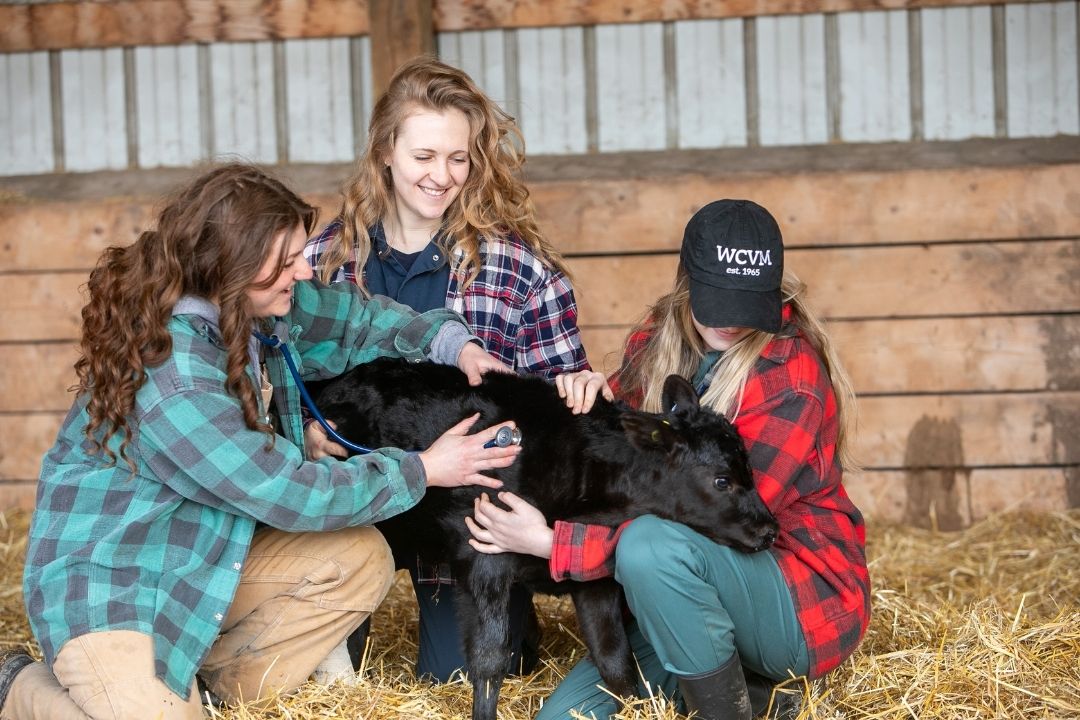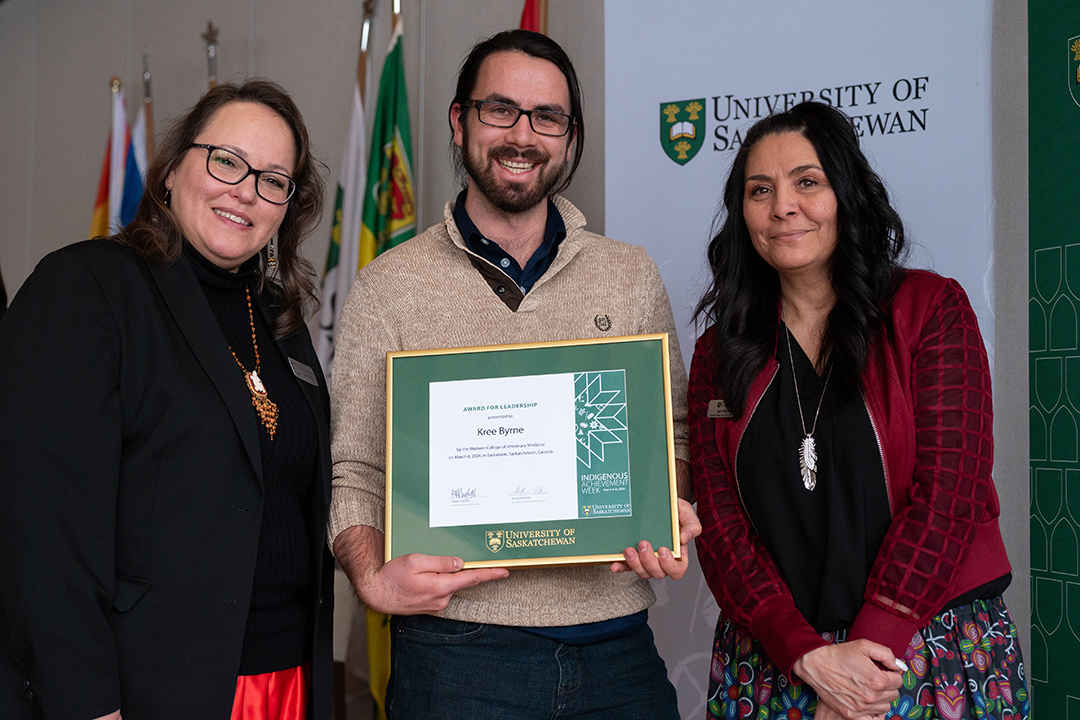
Designated WCVM seats aim to enrich veterinary profession
As demand for animal health care in rural areas and underserved communities grows, the Western College of Veterinary Medicine (WCVM) is leading efforts to address these needs through innovative admissions strategies.
By Rigel SmithIn collaboration with its partner provinces — British Columbia, Manitoba and Saskatchewan — the WCVM now offers seats in its Doctor of Veterinary Medicine (DVM) program that are designated for students with agriculture-focused career goals. Last year, the college also increased the number of DVM seats allocated for Indigenous applicants. Both initiatives aim to build a more diverse and representative workforce.
Heather Mandeville is the WCVM’s manager of admissions and recruitment. In the following Q & A, she shares insights about these designated seats and the future benefits that they will bring to the veterinary field.
Q. What are the WCVM’s “agriculture-focused” seats? Why are they offered?
At the request of the WCVM’s partner provinces, the WCVM introduced agriculture-focused seats initially in Saskatchewan (class entering fall 2022) and then in British Columbia and Manitoba. Offering these seats helps to address the shortage of veterinarians practising in large- or mixed-animal clinics in rural communities, since having access to veterinary services is vital to livestock producers and the agriculture industry. Each year, the WCVM offers 16 “agriculture-focused” seats in the first-year class — six seats for B.C. applicants and five each for Manitoba and Saskatchewan applicants.
Q. The WCVM offers seats designated for Indigenous students, but what has recently changed?

In 2023, the WCVM increased the number of Indigenous-designated seats from two to five seats at the request of the college’s provincial partners. The additional three seats were added as part of each province’s total quota (B.C., Manitoba and Saskatchewan). The two original seats remain open across all applicant pools, including territory residents. Applicants must be First Nations, Inuit or Métis persons of Canada and have their membership/citizenship approved by the deybwewin | taapwaywin | tapwewin: Indigenous truth policy and standing committee in accordance with the processes developed to enact the policy.
Q. What benefits do these agriculture-focused and Indigenous seats bring to the overall veterinary community?
This approach helps to increase the number of both Indigenous students and agriculture-focused students enrolled in our DVM program. Once they graduate, our hope is that they will live and work in Western Canada and enrich our region’s veterinary profession.
Under-represented populations, such as Indigenous students, enhance the diversity of the WCVM, the university and the profession. Ultimately, more diversity in the veterinary profession benefits our society at large, since all are gaining a perspective about how veterinary medicine is delivered, and how animals are valued and used in different cultures. In addition, having a representative workforce allows for enhanced access to veterinary services in underserved communities.
The Northern Engagement and Community Outreach (NECO) program, which has been operating since 2014, helps to enrich our veterinary students’ experiences. Through partnerships with northern Saskatchewan communities, NECO provides veterinary services to underserved regions while providing valuable student learning opportunities. Fourth-year students can participate through clinical rotations, while students in other years regularly volunteer for the remote clinic events. Students who take the NECO rotations benefit from the community-engaged service delivery model and gain insight into cultural and regional differences in animal care.
Q. What has been the response so far?
They have been well received — prospective students are interested in learning more about the seats, and the college’s partner provinces are enthusiastic about supporting and promoting them. To help support the college’s recent admissions initiatives, the WCVM recently launched a pilot program promoting veterinary medicine to students in rural areas and Indigenous youth. Its aim is to recruit future applicants — especially for seats designated for agriculture-focused students and Indigenous applicants. During their school breaks, WCVM students can organize presentations and activities in their home communities for elementary and high school students as well as for 4-H clubs and other youth organizations. By supporting these student-driven activities, the WCVM hopes to create more awareness about the college’s educational opportunities and the potential career options in animal health.
Q. With the Dec. 1 deadline approaching, what advice would you give to students?
I strongly encourage applicants to apply! Check the WCVM admissions website for full details on admission requirements and processes. Reach out by email with any questions to wcvm.admissions@usask.ca.
Q. Where can students find more information?
Visit the WCVM admissions website and WCVM Applicant Manual. See Appendices A, B and C to learn more about the agriculture-focused seats.
Together we will support and inspire students to succeed. We invite you to join by supporting current and future students' needs at USask.
